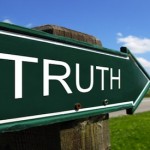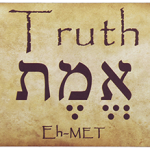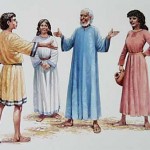#102 Emet: Being Truthful
#102 Emet: Being Truthful
 In this lesson you will explore the Jewish idea of Emet, being truthful. Judaism holds being truthful at a very high level and truthfulness is important in relationships. We will explore three different categories of being false in order to understand why is important to be truthful and honest:
In this lesson you will explore the Jewish idea of Emet, being truthful. Judaism holds being truthful at a very high level and truthfulness is important in relationships. We will explore three different categories of being false in order to understand why is important to be truthful and honest:
1. Flat out lying
2. Deception and manipulation
3. Saying one thing but thinking the other
If a person can avoid these three types of falsehood, they will more likely be living a life of being truthful.
#1 Telling the truth is an important Jewish value
“One should not break one’s word” – Book of Numbers 30:3
“Teach your tongue to say, “I don’t know” lest you be caught in a lie. – Talmud Brachot 4a
#2. Tell the truth and don’t lie: Watch this!
#3 Study This:
 “Those who deal deceitfully shall not live in My house; those who speak untruth shall not stand before My eyes. – Psalms 101:7
“Those who deal deceitfully shall not live in My house; those who speak untruth shall not stand before My eyes. – Psalms 101:7
“There are seven types of thieves, but a “thought thief” – one who deceives another) is the worst of all.” – Mechilta Mishpatim 13:135
#4: WATCH :
#5: Did you know that in the Torah, Jacob was deceived?
 Jacob wanted to marry Rachel. He worked for her father Laban for seven years in order to marry Rachel. On his wedding night, Laban switched his daughters. Instead of Rachel, he put Leah in her place to marry Jacob. “When morning came, there was Leah! So Jacob said to Laban, “what is this you have done to me? I was in your service for Rachel! Why did you deceive me? – Book of Genesis 29:25
Jacob wanted to marry Rachel. He worked for her father Laban for seven years in order to marry Rachel. On his wedding night, Laban switched his daughters. Instead of Rachel, he put Leah in her place to marry Jacob. “When morning came, there was Leah! So Jacob said to Laban, “what is this you have done to me? I was in your service for Rachel! Why did you deceive me? – Book of Genesis 29:25
What’s the lesson: Don’t say one thing but mean something else?
#6. Listen to this! – Truth Song by Have Fun Teaching
#7 RESPOND AND REACT
1. Can you explain this short phrase in your own terms: “One shall not break one’s word.”
2. The Talmud teaches, “such is the punishment of the liar – even when speaking the truth, the person is not listened to anymore.” Can you explain this?
3. Is it ever okay to tell a lie?
4. Why is it important to be truthful? When there are lies or deception, who gets hurt?
Need some help?
We’re here for you. At any time, if you have any questions, please contact one of our teachers so we can help you.
Also, at the end of the session, remember to review your responses in your Tamid Workbook so you can get credit for this lesson. Behatzlacha (Hebrew for good luck)!
You can reach us at (646)360-0689 or connect@tamidnyc.org
